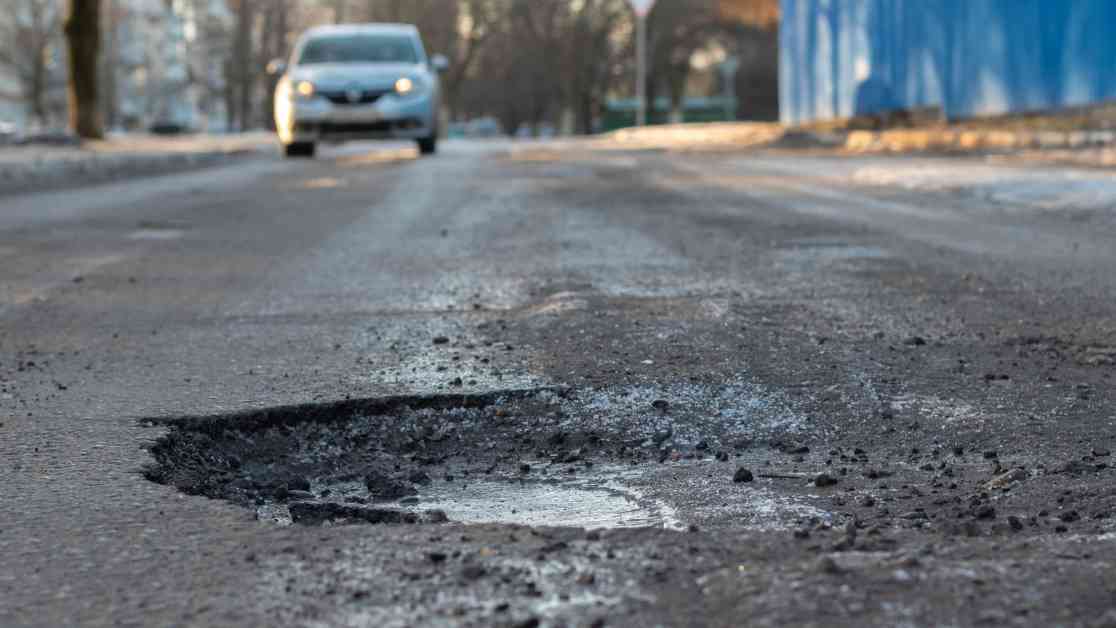Innovative ‘Self-Healing Roads’ to Revolutionize Road Repair
Potholes have long been the bane of drivers’ existence, causing havoc on our roads and wreaking havoc on our vehicles. But what if roads could heal themselves? A groundbreaking new research project spearheaded by teams from Swansea University and King’s College London, in collaboration with scientists in Chile, may hold the key to solving this age-old problem.
Researchers have been hard at work developing a cutting-edge type of “self-healing asphalt” that has the potential to mend its own cracks, paving the way for more sustainable roads nationwide. Dr. Jose Norambuena-Contreras, a senior lecturer at Swansea University’s department of civil engineering, shed light on this innovative approach in a recent interview with Sky News, calling it a “complex process.”
The concept behind this self-repairing asphalt is simple yet revolutionary: the materials are designed to autonomously close any cracks that may form, eliminating the need for human intervention. This breakthrough is made possible by incorporating tiny materials, known as spores, filled with recycled oils into the asphalt. When the material begins to crack, these spores are released, kickstarting the healing process.
Advancing Road Repair Technology
Laboratory experiments have yielded promising results, showcasing the remarkable self-healing capabilities of the asphalt. In a controlled setting, a microcrack on the asphalt’s surface was completely healed in under an hour, highlighting the potential of this innovative solution. Dr. Norambuena-Contreras emphasized the long-term benefits of implementing this technology, stating that while there may be an initial increase in budget to apply the new material on roads, the investment pays off by extending the surface life of the road.
“It is like a body, right? If you can identify any problem in your body, you can stop the problem in the earlier stage, you can stop the problem. Here, it’s exactly the same concept,” Dr. Norambuena-Contreras explained. By addressing road damage proactively, much like addressing health issues early, we can prevent costly repairs and ensure safer roads for all.
Government Response and Future Outlook
The urgency of addressing road maintenance issues has not gone unnoticed by policymakers. In December, Sir Keir Starmer urged councils to take swift action in repairing pothole-ridden roads, echoing concerns raised by the RAC about the rise in vehicle breakdowns attributed to potholes. The Prime Minister emphasized the critical impact of damaged roads, citing the risks they pose to lives and the financial burden they place on drivers.
To support local authorities in their road repair efforts, the Government has pledged £500 million to tackle potholes in the upcoming year. This investment underscores the importance of maintaining our road infrastructure and ensuring the safety and well-being of all road users.
In conclusion, the development of self-healing roads represents a significant leap forward in road repair technology, offering a sustainable solution to the age-old problem of potholes. By harnessing the power of innovation and collaboration, we can pave the way for safer, more resilient roads that benefit our communities and the environment. Let’s look forward to a future where potholes are a thing of the past, thanks to the transformative potential of self-healing asphalt.




